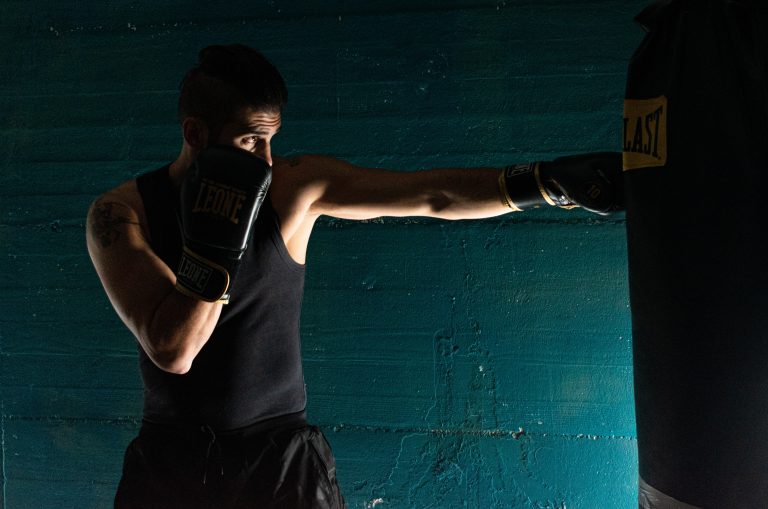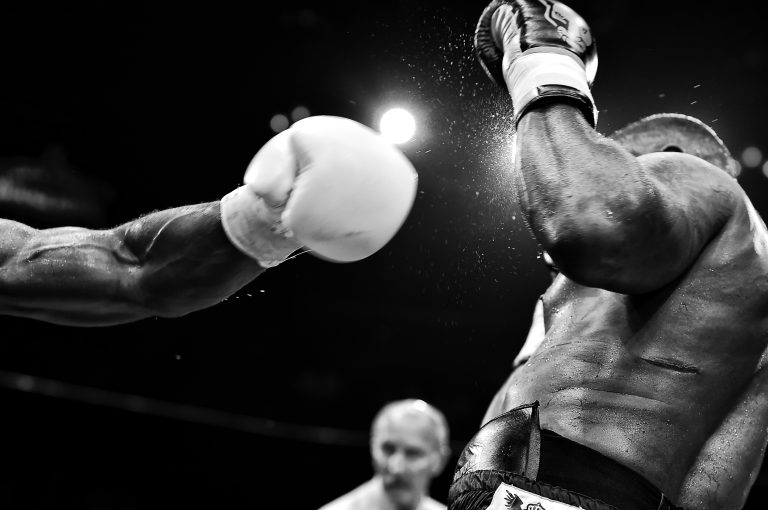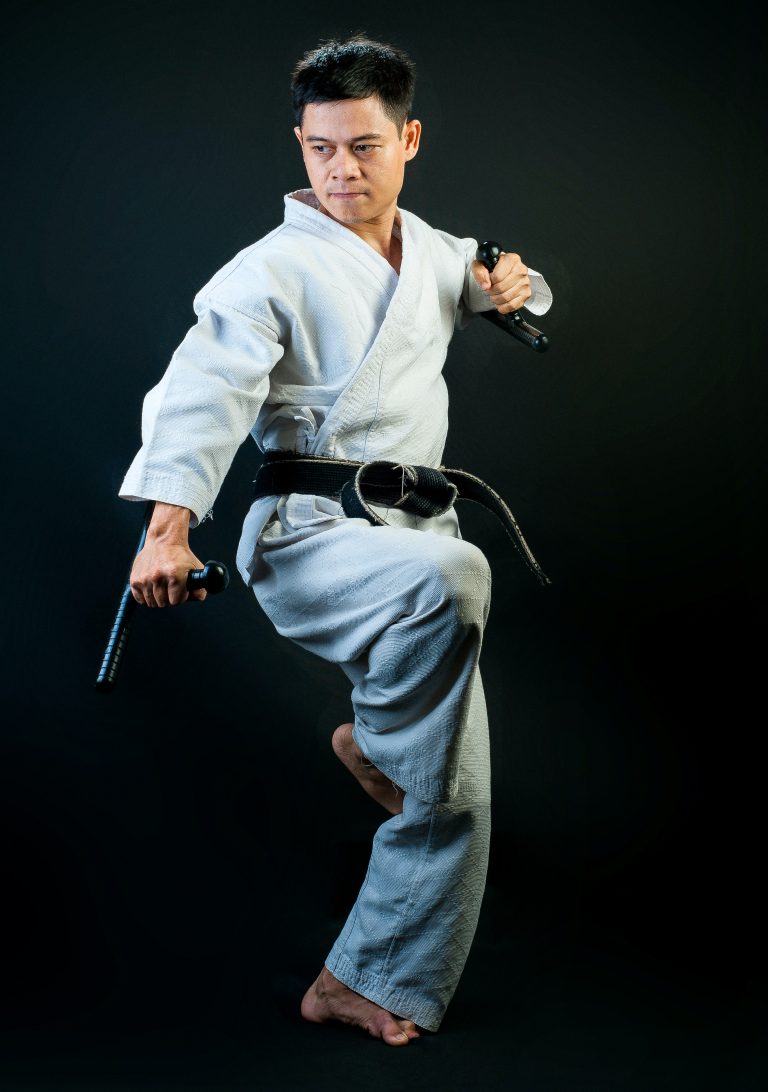Karate Skills List: Everything You Need to Know to Master Karate
Karate is a martial art that originated in Japan and is practiced throughout the world. Karate involves a range of techniques, including punches, kicks, and strikes, and it requires a great deal of physical and mental training to master. In this article, we’ll take a look at the essential karate skills you should work on to become proficient in this powerful martial art.
Basic Karate Skills
1. Stances – In karate, stances are the foundation of all techniques. You will need to master various stances, such as the front stance, back stance, horse riding stance, and the cat stance before you can progress to more advanced techniques.
2. Punches – Karate punches are quick, powerful, and precise. There are several types of punches in karate, including the straight punch, the uppercut punch, and the hook punch. Practicing the proper technique for each punch is critical.
3. Kicks – Karate kicks involve powerful leg movements that are executed with speed and accuracy. Techniques like the front kick, roundhouse kick, and side kick require strength and flexibility. You will need to practice these techniques extensively to master them.
4. Strikes – Karate strikes are hand techniques that can cause significant damage to an opponent. Techniques such as the knife hand strike, the ridge hand strike, and the palm heel strike all require precise positioning and timing.
Intermediate Karate Skills
1. Blocks – In karate, blocking is used to deflect an opponent’s attack. Techniques like the rising block, the downward block, and the inside block require coordination and timing to be executed correctly.
2. Throws – Throwing techniques are used to off-balance and immobilize an opponent. Judo-style throws like the hip throw and the shoulder throw can be incorporated into a karate practice for added versatility.
3. Joint Locks – Joint locks are techniques that can be used to immobilize an opponent’s joints. Techniques like the elbow lock and the wrist lock can be employed to control an opponent’s movements.
4. Kata – Kata is a series of prearranged movements that simulate a fight against multiple imaginary opponents. Practicing kata helps to develop muscle memory and improve technique.
Advanced Karate Skills
1. Sparring – Sparring is the best way to apply karate skills in a live-action setting. It involves sparring with a partner while wearing protective gear. Sparring can help develop speed, timing, and precision.
2. Breaking – Breaking involves using karate techniques to break objects like boards or bricks. This advanced skill requires a great deal of focus, accuracy, and power.
3. Weapons – Some schools of karate incorporate weapons training, such as the bo staff, nunchaku, or sai. Weapons training requires focus, coordination, and a great deal of practice.
The Most Frequently Asked Questions about Karate Skills List
Karate is a martial art that brings together different skills, ranging from striking techniques to defensive moves. Novice karate practitioners may find it confusing to understand the complete list of karate skills and techniques. This post has compiled some of the most common questions surrounding karate skills lists.
1. What is a Karate Skills List?
A karate skills list is a compilation of the most critical skills required for practicing karate martial arts. It includes everything you need to know about karate, including the techniques involved in striking, joint locking, clinching, and grappling moves.
2. What are the important karate skills?
The most important karate skills include striking, blocking, and kicking moves. Practitioners also need to learn katas, which are pre-arranged movements or patterns of movements that simulate responses to real-world scenarios. Other valuable skills to learn include joint locks, throws, and grappling moves that help you identify an opponent’s vulnerable points and take them down using minimal effort.
3. How many skills should I learn to become a karate master?
Becoming a karate master takes time, dedication, and the right mindset. The number of skills you need to learn before becoming a master depends on your level of dedication and the martial arts style you follow. Generally, it can take around ten years or more to develop mastery over a single karate style, but this will also depend on how frequently you practice.
4. How long does it take to learn a complete karate skills list?
The time required to learn a complete karate skills list will depend on several factors, including your natural ability, physical fitness level, and experience with other martial arts styles. With regular practice and a focused curriculum, it can take anywhere from one to four years to get through all the essential karate skills, though this will depend on the effort you put in.
5. What is the best way to learn karate skills?
The best way to learn karate skills is to find a reputable dojo or karate school with experienced teachers who can help you hone your technique. Ideally, you should join a school with an established curriculum that is designed to take you from a beginner to an advanced practitioner through step-by-step training modules. Professional training provides you with the necessary feedback and corrections to enhance your technique and avoid incorrect movements.
6. What should I look for in a good karate school?
When seeking a karate school, you should look for a clean, well-maintained facility that is safe to practice in. Additionally, find a school with experienced instructors who have a clear understanding of the style they’re teaching, which is reflected in a structured and organized curriculum. Pay attention to their qualifications too – the instructors you follow should be certified and qualified to teach martial arts.
7. Are there any online courses for learning karate skills?
Yes, there are online courses available for learning karate skills, but they don’t offer the real-time feedback and corrections that a traditional dojo can. Online courses can be successful if you already have experienced professional training and are using them as refreshers or supplementary courses. However, if you’re a beginner or intermediate practitioner, enrolling in an online course isn’t as effective as in-person training.
8. What are the common mistakes beginners make when trying to learn karate skills?
One of the main mistakes beginners make is not investing enough time to learn the foundational karate skills, such as stances, footwork, and basic techniques. Another common mistake is not using the right muscles when performing kata and other moves, or relying too much on strength and not enough on technique. Lastly, beginners may forget to focus on their breathing, which can significantly impact their technique and ability to learn more extensive karate skills.
9. Do I need to be flexible to learn karate correctly?
While flexibility helps in executing some karate moves, it isn’t essential as many techniques rely on proper form, balance, and muscle control rather than extreme flexibility. You don’t need to master a full split to be effective at karate, but some level of flexibility will help you avoid muscle strain and injury.
10. Can I learn karate skills at any age?
Yes, you can learn karate skills at any age. Although it is best to start early, you can still begin as an adult and progress at a steady pace. Karate has several health benefits for people of all ages, including improved fitness, balance, coordination, and strength.
How to Master the Karate Skills List
Karate is one of the most popular martial arts that originated in Japan. It is a combination of self-defense techniques, fighting, and physical exercises that requires discipline, focus, and practice. If you’re interested in learning karate, mastering the karate skills list is essential. In this blog post, we will guide you through the process of mastering the karate skills list with clear step-by-step instructions.
Step 1: Understand the Basics of Karate
Before delving into the karate skills list, it’s important to understand the basics of karate. Karate involves a combination of kicks, strikes, blocks, and punches that require proper technique and form. You must also understand the philosophy and the principles of karate, including discipline, respect, and patience. Without a strong foundation in the basics, it’s difficult to master the karate skills list.
Step 2: Practice the Karate Stances
Karate stances are a crucial part of mastering the karate skills list. Proper stance is essential for balance, stability, and power. There are several stances that you need to master, including the horse stance, front stance, back stance, and cat stance. Each stance has its own purpose and is used in different situations. Practice each stance with correct posture and form until it becomes second nature.
Step 3: Master the Basic Karate Techniques
Once you have a solid foundation in the karate stances, you can move on to mastering the basic karate techniques. These include punches, kicks, blocks, and strikes. It’s important to start with the basic techniques and practice them until you’ve mastered each one before moving on to the more advanced techniques. You should practice each technique with proper form, speed, and power so that you can perform them correctly in any situation.
Step 4: Learn the Katas
Katas are a series of preset movements that simulate a fight against imaginary opponents. Each kata has its own sequence of moves and requires precise timing and execution. By practicing the katas, you can improve your balance, coordination, and speed. You should start with the simpler katas and work your way up to the more complex ones.
Step 5: Spar with Partners
Once you’ve mastered the basics and the katas, you can start sparring with partners. Sparring is an essential part of karate training as it simulates a real fight and teaches you how to apply your karate skills in a real-world scenario. You should start with light sparring and gradually increase the intensity as you improve your skills.
Step 6: Continuously Train and Improve
Lastly, it’s important to continuously train and improve your karate skills. Regular practice and training are essential to master the karate skills list. You should set goals for yourself and work towards achieving them. As you improve, you can start learning more advanced techniques and challenging yourself with harder katas and sparring partners.
In conclusion, mastering the karate skills list requires dedication, discipline, and practice. By following these steps, you can improve your karate skills and become a skilled martial artist. Remember to always practice with proper form and technique, and never hesitate to seek guidance from your instructors.
Inhaltsverzeichnis






